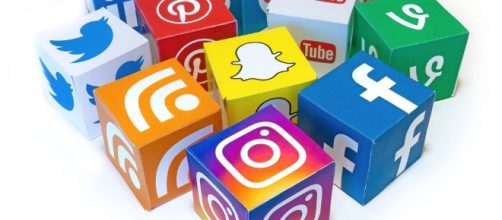social media has its perks. It is a great way to stay connected with people across oceans, time zones, and state lines. It is a lucrative way to advertise yourself, your business, or your product. It is an efficient way to find events, make plans, and see what people in your network are doing. With real-time videos, chats, “stories,” photos, and text posts, the availability of access to an inner look at other peoples lives has become a #global pastime.
The Bad
Despite all its positive effects, it proves to be an unparalleled distraction. Once a simple way to fill unused time or boredom, we now find ourselves turning to interactions with virtual people in the cyber-world rather than physical interactions in the tangible world.
Our constant exposure to hot, new trends and turnover of content has made social media the dictator of what is socially acceptable, of the new normal.
We all want to be up-to-date with the latest trends and the everyday lives of our hundreds of close friends over social media. This feeds the creeping monster of jealousy, and, if they are friends of yours, it creates FOMO, an acronym for the “fear of missing out.” We do this to sate our irresistible curiosity to know what everyone else is doing, and by inevitable comparison, if what they are doing is better than what we are doing.
The Psychological
According to Kae Lani Kennedy, the social media manager at Matador Network, “The phenomenon is called social comparison, and it states that "In the absence of objective measures for self-evaluation, we compare ourselves to others to find out how we’re doing." Through comparison, we are able to define what is acceptable through the use of likes, shares, and comments, and because of that fact, the statistics our posts get is indicative of how accepted we are.
To increase our statistics we sometimes find ourselves commenting, liking, posting, or sharing content we don’t actually care about in the hopes of getting a like back. And it’s all because we each crave societal approval.
In their article titled "Social Acceptance and rejection: the sweet and the bitter," psychologists C. Nathan DeWall and Brad J. Bushman explain how acceptance once helped humans survive, “We have weak claws, little fur, and long childhoods; living in a group helped early humans survive harsh environments. Because of that, being part of a group still helps people feel safe and protected." Ingrained in our ancient ancestral memory is this perpetuating desire for social acceptance that stems from the necessity of others to survive.
Because of this, our mental process has arranged itself to positively affect us when we receive acceptance and negatively affect us when we receive rejection. Exclusion and rejection are bad for your health; your body is trying to help you survive and associates survival with acceptance. According to DeWall and Bushman, our bodies respond to rejection the same way they respond to pain, and therefore, to avoid a painful outcome, the brain tells us to keep abiding by the rules of what is socially accepted.
With this underlying psychological impact, it is no wonder why people spend hours editing a photo and choosing the perfect caption. Our bodies are telling us to work hard to find social acceptance and maintain group expectations in order to survive and avoid pain. Even if this wasn't the intention of social media, it is the unexpected outcome, and therefore we have to deal with its consequences.


